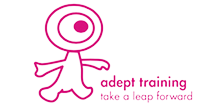
How do I become a therapy aide?
Certificate III in Allied Health Assistance
- There are no mandated entry requirements.
 Foundation Education
Foundation Education
Certificate III in Health Administration
- There are no mandated entry requirements.


Certificate IV in Allied Health Assistance
- There are no mandated entry requirements.
 Foundation Education
Foundation Education
Certificate IV in Medical Practice Assisting
- There are no mandated entry requirements.
 Adept Training
Adept Training
Dual Certificate III in Allied Health Assistance & Certificate IV in Allied Health Assistance
- There are no mandated entry requirements.
 Foundation Education
Foundation Education
Related occupations
Occupational Therapy Assistant
An Occupational Therapy Assistant implements therapy programs for clients, addressing daily living activities and communication needs.
Occupational Therapist
An Occupational Therapist improves clients’ daily activity skills through assessments, therapy, and treatment plans across various settings.
Hand Therapist
Hand Therapists assist patients in recovering from upper limb injuries and conditions by creating personalised treatment plans and exercises.
Paediatric Occupational Therapist
Paediatric Occupational Therapists support children with disabilities or health issues by developing treatment plans for daily living tasks.
Common questions
How much does a Therapy Aide earn?
In Australia, a full time Therapy Aide generally earns $1,000 per week ($52,000 annual salary) before tax. This is a median figure for full-time employees and should be considered a guide only. As you gain more experience you can expect a potentially higher salary than people who are new to the industry.
What are the job opportunities for a Therapy Aide?
This industry has seen a strong increase in employment numbers in recent years. There are currently 5,400 people working as a Therapy Aide in Australia compared to 4,200 five years ago. Therapy Aides may find work across all regions of Australia.
Source: Australian Government Labour Market Insights
How do I become a Therapy Aide?
If you’d like to pursue a career as a Therapy Aide, consider enrolling in a Certificate III in Allied Health Assistance. This course will give you the skills to deliver allied health programs in a range of settings. You could also specialise your skills with a Certificate IV in Allied Health Assistance (Occupational Therapy), a Certificate IV in Allied Health Assistance (Physiotherapy) or a Certificate IV in Allied Health Assistance (Community Rehabilitation).
Further reading


What can you do with a Certificate IV in Allied Health Assistance?
31st August 2021)

